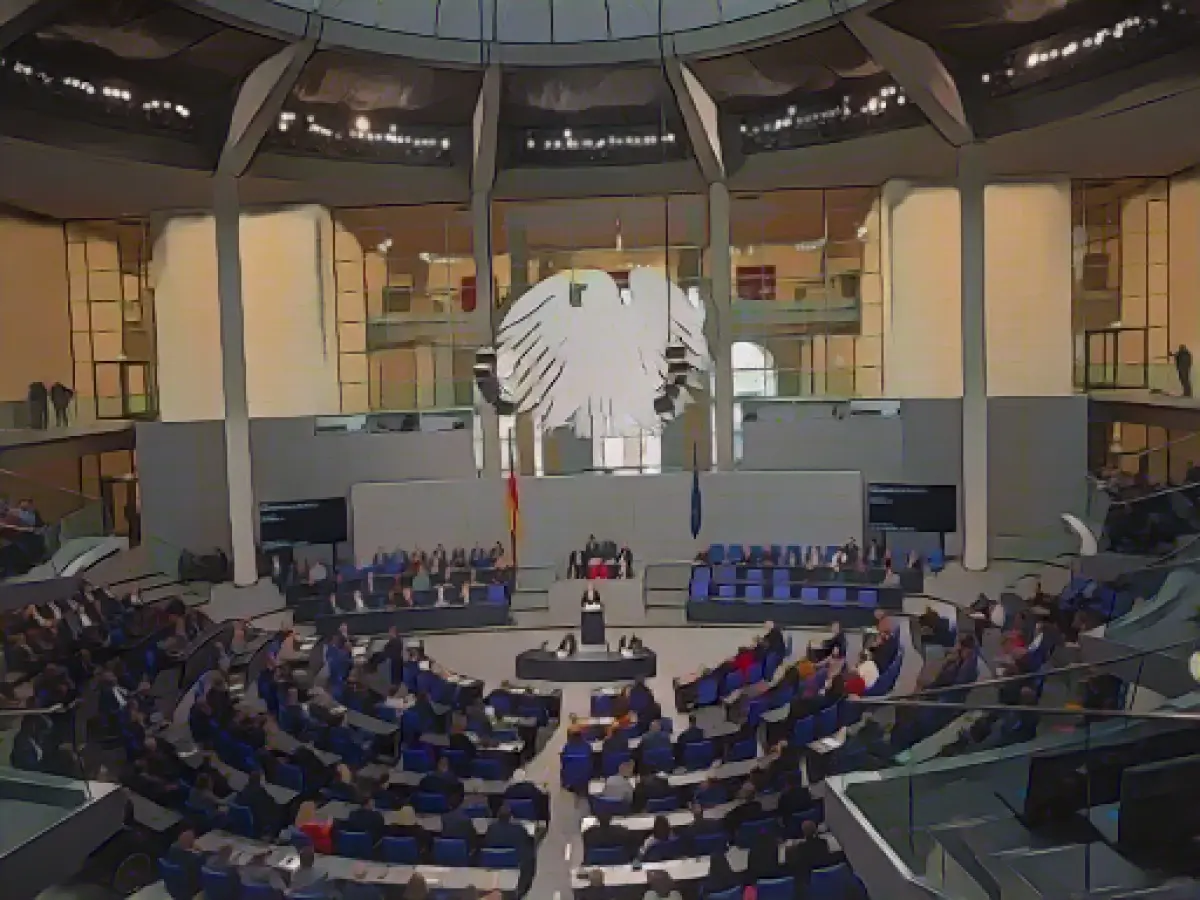Too complicated? Karlsruhe rules on 2020 electoral law reform
Is the electoral law too complicated and are the changes made by the 2020 electoral law reform legal - the Federal Constitutional Court in Karlsruhe will decide on this. This is not about the current electoral law, but about the previous reform.
This was pushed through by the then black-red coalition. A total of 216 MPs from the FDP, the Greens and the Left Party, who were all in opposition at the time, filed a joint complaint against it.
Among other things, it concerns the regulations on seat allocation, according to which the current Bundestag was formed in 2021. The aim of the reform was to reduce the size of the Bundestag, which had become ever larger due to overhang and compensatory mandates.
In the view of the plaintiffs, the principle of equal opportunities for the parties has been violated. They also complain that the regulations are far too complicated and opaque. The Second Senate already dealt with this in great detail at the hearing in April. It discussed whether an electoral law could possibly be unconstitutional simply because no voter understands it.
Specifically, the highest German court is dealing with what is known as a review of standards. In this case, the judges review the constitutionality of a legal norm - in this case Article 1 numbers 3 to 5 of the 25th Act Amending the Federal Election Act - from all possible points of view.
Result of significance for repeat election in Berlin
The result is likely to be particularly important for the planned repeat election in Berlin. This is because the 2021 Bundestag election may have to be repeated in some constituencies there due to glitches on election day. Proceedings are also underway in Karlsruhe; the verdict will be handed down on December 19. This repeat election would actually have to be held according to the same rules as the original main election. However, if this was held according to unconstitutional regulations, tricky legal questions arise regarding the procedure for the repeat election.
There are currently 736 MPs in the Bundestag, more than ever before. Originally, the standard number was set at 598. Therefore, everyone basically agreed that there was a need for reform here. Only the "how" has been debated for years. Because everyone wants to avoid the shrinkage coming at their expense.
One point of criticism of the 2020 reform was that overhang mandates are only compensated for by compensatory mandates for other parties from the fourth mandate onwards. Overhang mandates arise when a party wins more direct mandates than it is entitled to according to the second vote result. At the hearing in Karlsruhe in April, Green politician Till Steffen criticized that the CSU had thus secured a "very strong special advantage". CSU candidates usually win almost all constituencies in Bavaria.
The traffic light party's own electoral law reform
In the meantime, the current traffic light coalition of SPD, Greens and FDP has launched its own electoral law reform. It goes significantly further than the previous reform and has been heavily criticized by the current opposition. Several lawsuits against it are already pending before the Federal Constitutional Court.
Against this backdrop, the FDP, Greens and Left Party then also submitted a motion to suspend their proceedings on the previous reform. They were of the opinion that the matter had been settled. However, the judges took a different view and rejected the application in March, stating that there was a public interest in continuing the proceedings.
- The Federal Constitutional Court in Karlsruhe is set to deliver a judgment on the 2020 electoral law reform, specifically addressing concerns about its legality and potential complexity, which were raised by a coalition of MPs from the FDP, Greens, and Left Party.
- The outcome of the Federal Constitutional Court's review of the 2020 electoral law reform could have significant implications for the planned repeat election in Berlin, as the validity of the regulations used in the original election may impact the rules for the reelection if found unconstitutional.
- The traffic light coalition's proposed electoral law reform, which involves further amendments, has received significant criticism and has spawned several lawsuits before the Federal Constitutional Court, adding to the ongoing legal proceedings concerning electoral law reform in Germany.
Source: www.dpa.com








